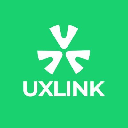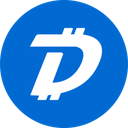-
 Bitcoin
Bitcoin $83,038.0069
-0.47% -
 Ethereum
Ethereum $1,797.3439
-1.89% -
 Tether USDt
Tether USDt $0.9997
-0.03% -
 XRP
XRP $2.0631
-0.32% -
 BNB
BNB $593.8720
-2.40% -
 USDC
USDC $1.0000
-0.01% -
 Solana
Solana $115.8553
-3.30% -
 Dogecoin
Dogecoin $0.1635
-1.87% -
 Cardano
Cardano $0.6517
-0.23% -
 TRON
TRON $0.2382
0.50% -
 UNUS SED LEO
UNUS SED LEO $9.5907
1.95% -
 Toncoin
Toncoin $3.5320
-6.97% -
 Chainlink
Chainlink $12.7780
-3.04% -
 Stellar
Stellar $0.2599
-1.41% -
 Avalanche
Avalanche $18.2060
-3.24% -
 Shiba Inu
Shiba Inu $0.0...01214
-1.86% -
 Sui
Sui $2.1936
-8.27% -
 Hedera
Hedera $0.1622
-1.58% -
 Litecoin
Litecoin $83.5547
-0.20% -
 Polkadot
Polkadot $4.0164
-0.59% -
 MANTRA
MANTRA $6.3522
0.04% -
 Bitcoin Cash
Bitcoin Cash $306.7656
0.80% -
 Bitget Token
Bitget Token $4.4830
-1.58% -
 Dai
Dai $1.0000
0.00% -
 Ethena USDe
Ethena USDe $0.9995
-0.04% -
 Monero
Monero $217.5723
0.24% -
 Hyperliquid
Hyperliquid $11.6936
-6.46% -
 Pi
Pi $0.5508
-14.89% -
 Uniswap
Uniswap $5.8803
-2.39% -
 Aptos
Aptos $5.0009
-5.37%
What does blockchain mean and how does it achieve efficient asset tokenization?
Blockchain enables efficient asset tokenization through decentralization, fractional ownership, smart contracts, and enhanced security, increasing liquidity and accessibility.
Apr 03, 2025 at 07:57 pm
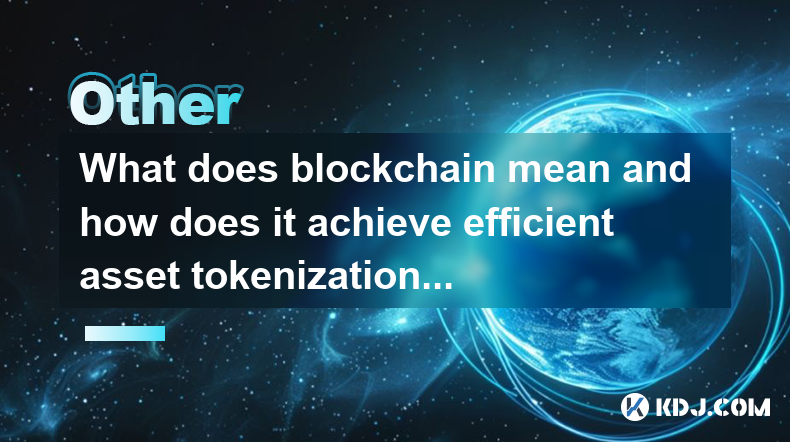
Blockchain technology is a decentralized, distributed ledger that records transactions across numerous computers. It ensures that each transaction is secure, transparent, and immutable. The concept of blockchain was introduced with the launch of Bitcoin in 2009, but its applications have since expanded far beyond cryptocurrencies. At its core, blockchain is a chain of blocks where each block contains a list of transactions. These blocks are linked using cryptographic hashes, making it nearly impossible to alter past transactions without consensus from the network.
The decentralized nature of blockchain means that no single entity has control over the entire network. Instead, it is maintained by a network of nodes that validate and record transactions. This distributed approach enhances security and reduces the risk of fraud. Blockchain's transparency comes from the fact that all participants have access to the same information, which is publicly verifiable. Immutability is achieved through cryptographic means, ensuring that once data is recorded, it cannot be changed without altering all subsequent blocks and gaining network consensus.
How Blockchain Achieves Efficient Asset Tokenization
Asset tokenization is the process of converting rights to an asset into a digital token on a blockchain. This process can significantly enhance the efficiency, accessibility, and liquidity of assets. Blockchain achieves efficient asset tokenization through several key mechanisms:
- Decentralization: By removing the need for intermediaries, blockchain reduces costs and speeds up transactions. Tokenized assets can be traded directly between parties, enhancing efficiency.
- Fractional Ownership: Blockchain allows assets to be divided into smaller units, enabling fractional ownership. This makes high-value assets more accessible to a broader range of investors.
- Smart Contracts: These are self-executing contracts with the terms directly written into code. They automate the tokenization process, ensuring that transactions are executed only when predefined conditions are met.
- Transparency and Security: The transparent nature of blockchain ensures that all tokenized assets are verifiable, reducing the risk of fraud. The security provided by cryptographic means protects the integrity of the tokens.
Benefits of Asset Tokenization on Blockchain
Tokenizing assets on a blockchain offers numerous benefits that contribute to its efficiency:
- Increased Liquidity: Tokenized assets can be traded 24/7 on global markets, increasing their liquidity compared to traditional assets.
- Reduced Costs: By eliminating intermediaries, blockchain reduces transaction fees and other costs associated with asset management.
- Enhanced Accessibility: Fractional ownership allows more people to invest in assets that were previously out of reach due to high entry costs.
- Improved Efficiency: The automation provided by smart contracts speeds up the process of buying, selling, and managing assets.
- Regulatory Compliance: Blockchain can be programmed to comply with regulatory requirements, ensuring that tokenized assets meet legal standards.
Examples of Asset Tokenization on Blockchain
Several real-world examples illustrate how blockchain is being used for asset tokenization:
- Real Estate: Platforms like RealT and Harbor allow investors to buy fractions of properties as tokens, making real estate investment more accessible.
- Art and Collectibles: Companies like Maecenas and Artory tokenize art pieces, enabling fractional ownership and increasing liquidity in the art market.
- Equities and Bonds: Platforms such as tZERO and Polymath facilitate the tokenization of stocks and bonds, allowing for more efficient trading and investment.
- Commodities: Tokenized gold and other commodities can be traded on platforms like Digix, providing a new way to invest in physical assets.
Challenges and Considerations in Asset Tokenization
While blockchain offers significant advantages for asset tokenization, there are also challenges and considerations to keep in mind:
- Regulatory Uncertainty: The regulatory environment for tokenized assets is still evolving, which can create uncertainty for investors and issuers.
- Technical Complexity: Implementing blockchain solutions for asset tokenization requires technical expertise and can be complex to set up and maintain.
- Security Risks: While blockchain is secure, vulnerabilities in smart contracts or other parts of the system can be exploited, leading to potential losses.
- Market Adoption: Widespread adoption of tokenized assets depends on market acceptance and the development of supporting infrastructure.
Future Prospects of Asset Tokenization on Blockchain
The future of asset tokenization on blockchain looks promising, with ongoing developments and innovations:
- Interoperability: Efforts are being made to create interoperable blockchain networks that can facilitate the seamless transfer of tokenized assets across different platforms.
- Integration with Traditional Finance: As blockchain technology matures, it is expected to integrate more deeply with traditional financial systems, enhancing the efficiency of asset management.
- New Asset Classes: The tokenization of new asset classes, such as intellectual property and carbon credits, is likely to expand the scope of blockchain applications.
- Regulatory Clarity: As regulations become clearer, it will become easier for businesses to tokenize assets and for investors to participate in these markets.
Common Questions Related to Blockchain and Asset Tokenization
Q: What is blockchain technology?
A: Blockchain technology is a decentralized, distributed ledger that records transactions across numerous computers. It ensures that each transaction is secure, transparent, and immutable. It was introduced with Bitcoin and has since expanded to various applications beyond cryptocurrencies.
Q: How does blockchain achieve efficient asset tokenization?
A: Blockchain achieves efficient asset tokenization through decentralization, fractional ownership, smart contracts, and enhanced transparency and security. These mechanisms reduce costs, increase accessibility, and improve the efficiency of asset management.
Q: What are the benefits of asset tokenization on blockchain?
A: The benefits include increased liquidity, reduced costs, enhanced accessibility, improved efficiency, and regulatory compliance. Tokenized assets can be traded more easily and at lower costs, making them more accessible to a broader range of investors.
Q: Can you provide examples of asset tokenization on blockchain?
A: Examples include tokenizing real estate on platforms like RealT and Harbor, art and collectibles on Maecenas and Artory, equities and bonds on tZERO and Polymath, and commodities like gold on Digix.
Q: What are the challenges and considerations in asset tokenization?
A: Challenges include regulatory uncertainty, technical complexity, security risks, and market adoption. These factors need to be carefully managed to ensure the successful implementation of tokenized assets.
Q: What are the future prospects of asset tokenization on blockchain?
A: Future prospects include improved interoperability, deeper integration with traditional finance, the tokenization of new asset classes, and clearer regulatory frameworks. These developments are expected to enhance the efficiency and scope of asset tokenization on blockchain.
Disclaimer:info@kdj.com
The information provided is not trading advice. kdj.com does not assume any responsibility for any investments made based on the information provided in this article. Cryptocurrencies are highly volatile and it is highly recommended that you invest with caution after thorough research!
If you believe that the content used on this website infringes your copyright, please contact us immediately (info@kdj.com) and we will delete it promptly.
- The meme coin space has seen a $10 billion drop
- 2025-04-04 14:00:12
- BTC Bleeds, But Big Time (BIGTIME) Token Surges Over 60%
- 2025-04-04 14:00:12
- Pi Network Coin: Can It Rise from the Ashes?
- 2025-04-04 13:55:12
- Dogecoin & XRP Experience Significant Profitability Decline Over Last 30 Days
- 2025-04-04 13:55:12
- Introducing the Delightful Ease of Cloud Mining
- 2025-04-04 13:50:12
- Pennies Allegedly Worth $124 Million and Billion-Dollar 1976 Bicentennial Quarters Are Hoaxes, Warns PNG
- 2025-04-04 13:50:12
Related knowledge

What are the future development trends of blockchain game development?
Apr 03,2025 at 05:00am
Blockchain technology has revolutionized various industries, and gaming is no exception. As we look to the future, several trends are set to shape the development of blockchain games. These trends not only promise to enhance the gaming experience but also to integrate blockchain technology more seamlessly into the gaming ecosystem. Let's explore these t...

What are the maintenance costs of blockchain system development?
Apr 03,2025 at 06:07pm
The maintenance costs of blockchain system development are multifaceted and depend on various factors. These costs can include technical maintenance, security updates, infrastructure expenses, and personnel costs. Understanding these elements is crucial for anyone planning to develop or maintain a blockchain system. Technical MaintenanceTechnical mainte...

What are the money-making models of blockchain games?
Apr 04,2025 at 02:00pm
Blockchain games have emerged as a revolutionary way for players to earn real money while enjoying their favorite pastime. These games leverage the power of blockchain technology to create unique money-making models that benefit both the players and the developers. In this article, we will explore the various money-making models of blockchain games and ...
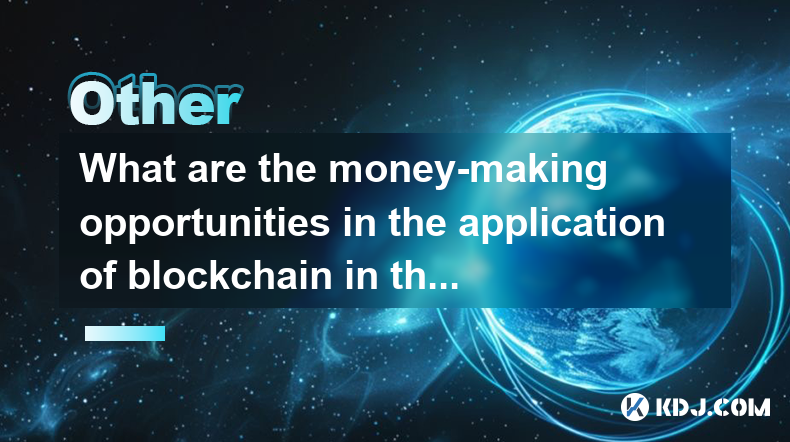
What are the money-making opportunities in the application of blockchain in the medical industry?
Apr 03,2025 at 03:35am
The integration of blockchain technology into the medical industry presents a myriad of money-making opportunities that can revolutionize healthcare systems. Blockchain's inherent characteristics, such as transparency, security, and immutability, make it an ideal solution for various medical applications. By leveraging blockchain, companies can develop ...
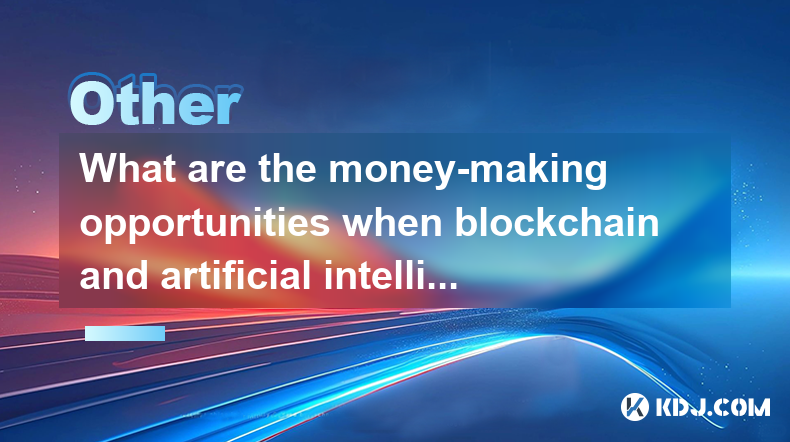
What are the money-making opportunities when blockchain and artificial intelligence are combined?
Apr 04,2025 at 01:28am
The convergence of blockchain and artificial intelligence (AI) presents a myriad of money-making opportunities within the cryptocurrency circle. This fusion leverages the decentralized and secure nature of blockchain with the analytical prowess of AI, creating innovative solutions and platforms that can generate significant revenue. From enhancing tradi...
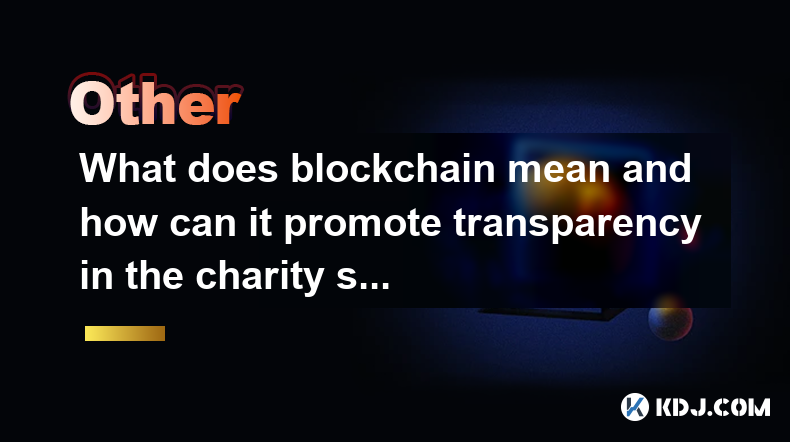
What does blockchain mean and how can it promote transparency in the charity sector?
Apr 03,2025 at 08:29pm
Blockchain technology is a decentralized, distributed ledger that records transactions across numerous computers. This ensures that the data is transparent and nearly impossible to alter retroactively. Essentially, blockchain serves as a digital ledger of all cryptocurrency transactions, enabling secure and direct exchanges without the need for intermed...

What are the future development trends of blockchain game development?
Apr 03,2025 at 05:00am
Blockchain technology has revolutionized various industries, and gaming is no exception. As we look to the future, several trends are set to shape the development of blockchain games. These trends not only promise to enhance the gaming experience but also to integrate blockchain technology more seamlessly into the gaming ecosystem. Let's explore these t...

What are the maintenance costs of blockchain system development?
Apr 03,2025 at 06:07pm
The maintenance costs of blockchain system development are multifaceted and depend on various factors. These costs can include technical maintenance, security updates, infrastructure expenses, and personnel costs. Understanding these elements is crucial for anyone planning to develop or maintain a blockchain system. Technical MaintenanceTechnical mainte...

What are the money-making models of blockchain games?
Apr 04,2025 at 02:00pm
Blockchain games have emerged as a revolutionary way for players to earn real money while enjoying their favorite pastime. These games leverage the power of blockchain technology to create unique money-making models that benefit both the players and the developers. In this article, we will explore the various money-making models of blockchain games and ...

What are the money-making opportunities in the application of blockchain in the medical industry?
Apr 03,2025 at 03:35am
The integration of blockchain technology into the medical industry presents a myriad of money-making opportunities that can revolutionize healthcare systems. Blockchain's inherent characteristics, such as transparency, security, and immutability, make it an ideal solution for various medical applications. By leveraging blockchain, companies can develop ...

What are the money-making opportunities when blockchain and artificial intelligence are combined?
Apr 04,2025 at 01:28am
The convergence of blockchain and artificial intelligence (AI) presents a myriad of money-making opportunities within the cryptocurrency circle. This fusion leverages the decentralized and secure nature of blockchain with the analytical prowess of AI, creating innovative solutions and platforms that can generate significant revenue. From enhancing tradi...

What does blockchain mean and how can it promote transparency in the charity sector?
Apr 03,2025 at 08:29pm
Blockchain technology is a decentralized, distributed ledger that records transactions across numerous computers. This ensures that the data is transparent and nearly impossible to alter retroactively. Essentially, blockchain serves as a digital ledger of all cryptocurrency transactions, enabling secure and direct exchanges without the need for intermed...
See all articles
















































































